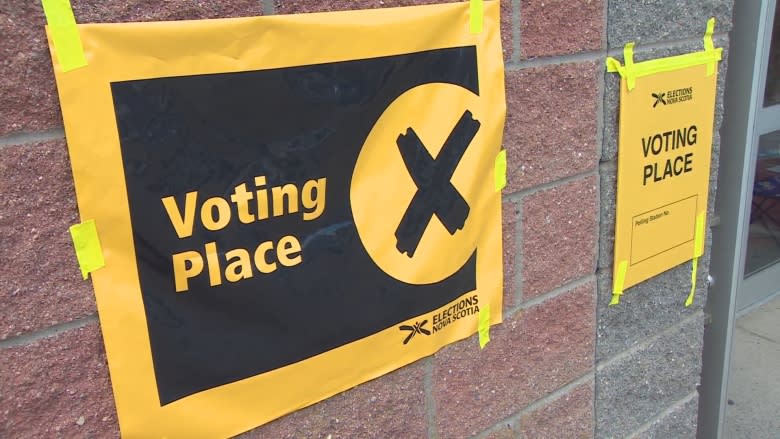The candidate who lost twice by 1 vote, and other facts from elections past
With the Nova Scotia election nearing, here are five surprising facts about elections from years gone by.
What's up with Tuesdays?
Of the 40 general elections (including this one) held in Nova Scotia since 1867, 30 of them have been on a Tuesday. An election has never been held on a Friday, Saturday or Sunday.
How a candidate lost twice by 1 vote
Tory Ernest M. Ettinger was elected MLA for East Hants in three elections, but it's the two others he lost that are the most memorable.
After winning in 1949, he ran again in the May 26, 1953, general election but lost to Liberal Alfred Edward Reid by one vote — 2,251 to 2,250.
According to an article in the Montreal Gazette, the result was made void by a court, rendering the seat vacant.
On Nov. 14, 1954, a special election was held in the riding, but it ended in a tie. The deciding ballot was cast by the returning officer, who voted for Reid, giving him a one-vote victory.
After a recount was held, Reid lost three votes, but Ettinger lost four, so Reid remained the winner.
The Gazette said Ettinger "gladly" accepted the results. "The people of Hants East have had enough elections for a while," he said.
Luckily for Ettinger, Reid didn't run in the 1956 general election. Ettinger won that year and again in 1960.
Ettinger died on May 29, 1962, while in office. His son, Albert James Ettinger, ended up winning the seat in the Aug. 27, 1962, byelection by 77 votes over the Liberal candidate, Gerald Augustine Regan.
Regan went on to become premier in 1970.
Fewest votes needed to win a seat
The fewest votes needed to win a seat in a general election since Nova Scotia abandoned dual-member ridings in 1981 was 1,411 by Liberal Keith Colwell in 2003. He won the riding of Preston by 50 votes over PC candidate David Hendsbee, the current Halifax municipal councillor for Preston-Chezzetcook-Eastern Shore.
Late election
The month of December conjures up images of snow, cold weather and Christmas, not politics. But in 1876, Nova Scotians went to the polls on Dec. 17.
On the flip side, the earliest in the year a general election has been held is March. Both the 1894 and 1998 general elections were held in the third month of the year.
More than 1 MLA per riding
Up until 1981, Nova Scotia had some ridings that were known as dual-member ridings. In these ridings, voters selected two candidates to represent their riding.
The last of these ridings were Inverness (which became Inverness North and Inverness South) and Yarmouth (which was divided into Yarmouth and Argyle).



